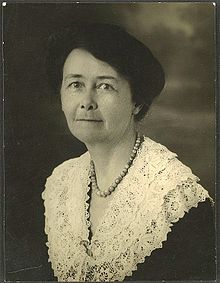
Roland Barthes quotes about time
French Critic, Philosopher November 12, 1915 – March 25, 1980
Roland Barthes quotes in frenchRoland Barthes quotes in russian
Roland Barthes quotes in german
Cite this Page: Citation
Quotes
For me the noise of Time is not sad: I love bells, clocks, watches? and I recall that at first photographic implements were related to techniques of cabinetmaking and the machinery of precision: cameras, in short, were clocks for seeing, and perhaps in me someone very old still hears in the photographic mechanism the living sound of the wood.
Roland Barthes
Am I in love? - Yes, since I'm waiting." The other never waits. Sometimes I want to play the part of the one who doesn't wait; I try to busy myself elsewhere, to arrive late; but I always lose at this game: whatever I do, I find myself there, with nothing to do, punctual, even ahead of time. The lover's fatal identity is precisely: I am the one who waits.
Roland Barthes
One day, quite some time ago, I happened on a photograph of Napoleon’s youngest brother, Jerome, taken in 1852. And I realized then, with an amazement I have not been able to lessen since: ‘I am looking at eyes that looked at the Emperor.’ Sometimes I would mention this amazement, but since no one seemed to share it, nor even to understand it (life consists of these little touches of solitude), I forgot about it.
Roland Barthes
A paradox: the same century invented History and PHotography. But History is a memory fabricated according to positive formulas, a pure intellectual discourse which abolishes mythic Time; and the Photograph is a certain but fugitive testimony; so that everything, today, prepares our race for this impotence: to be no longer able to conceive duration, affectively or symbolically: the age of the Photograph is also the age of revolutions, contestations, assassinations, explosions, in short, of...
Roland Barthes
It is said that mourning, by its gradual labour, slowly erases pain; I could not, I cannot believe this; because for me, Time eliminates the emotion of loss (I do note weep), that is all. For the rest, everything has remained motionless. For what I have lost is not a Figure (the Mother), but a being; and not a being, but a quality (a soul): not the indispensable, but the irreplaceable.
Roland Barthes
I waver—in the dark—between the observation (but is it entirely accurate?) that I’m unhappy only by moments, by jerks and surges, sporadically, even if such spasms are close together—and the conviction that deep down, in actual fact, I am continually, all the time, unhappy since maman’s death.
Roland Barthes
I cannot countenance the traditional belief that postulates a natural dichotomy between the objectivity of the scientist and the subjectivity of the writer, as if the former were endowed with a 'freedom' and the latter with a 'vocation' equally suitable for spiriting away or sublimating the actual limitations of their situation. What I claim is to live to the full contradiction of my time, which may well make sarcasm the condition of truth.
Roland Barthes
There is a time when death is an event, an ad-venture, and as such mobilizes, interests, activates, tetanizes. And then one day it is no longer an event, it is another duration, compressed, insignificant, not narrated, grim, without recourse: true mourning not susceptible to any narrative dialectic.
Roland Barthes
As a jealous man, I suffer four times over: because I am jealous, because I blame myself for being so, because I fear that my jealousy will wound the other, because I allow myself to be subject to a banality: I suffer from being excluded, from being aggressive, from being crazy, and from being common.
Roland Barthes
Today, information: pulverized, nonhierarchized, dealing with everything: nothing is protected from information and at the same time nothing is open to reflection -> Encyclopedias are impossible -> I would say: the more information grows, the more knowledge retreats and therefore the more decision is partial (terroristic, dogmatic) -> “I don’t know,” “I refuse to judge”: as scandalous as an agrammatical sentence: doesn’t belong to the language of the discourse. Variations on the “I don’t...
Roland Barthes
The Photograph is an extended, loaded evidence? as if it caricatured not the figure of what it represents (quite the converse) but its very existence ... The Photograph then becomes a bizarre (i)medium(i), a new form of hallucination: false on the level of perception, true on the level of time: a temporal hallucination, so to speak, a modest (o)shared(i) hallucination (on the one hand 'it is not there,' on the other 'but it has indeed been'): a mad image, chafed by reality.
Roland Barthes
In 1850, August Salzmann photographed, near Jerusalem, the road to Beith-Lehem (as it was spelled at the time): nothing but stony ground, olive trees; but three tenses dizzy my consciousness: my present, the time of Jesus, and that of the photographer, all this under the instance of 'reality'? and no longer through the elaborations of the text, whether fictional or poetic, which itself is never credible down to the root.
Roland Barthes
Popular Author
Related Authors
-
AC
Aleister Crowley Critic, Philosopher
-
 Campbell Scott Actor
Campbell Scott Actor -
JH
Jeff Hawkins Inventor
-
JP
John Philpot Curran Public Servant
-
MH
Matthew Hale Historian
-
 Miles Franklin Writer
Miles Franklin Writer -
PK
Pauline Kael Critic
-
 Roland Barthes Critic, Philosopher
Roland Barthes Critic, Philosopher -
RB
Ruth Buzzi Actress
-
 Walter Benjamin Critic, Philosopher
Walter Benjamin Critic, Philosopher
